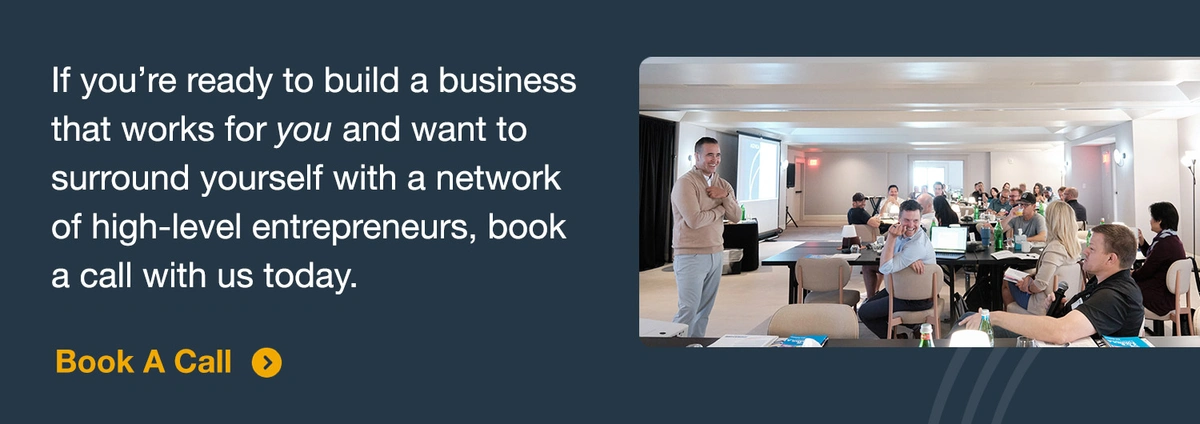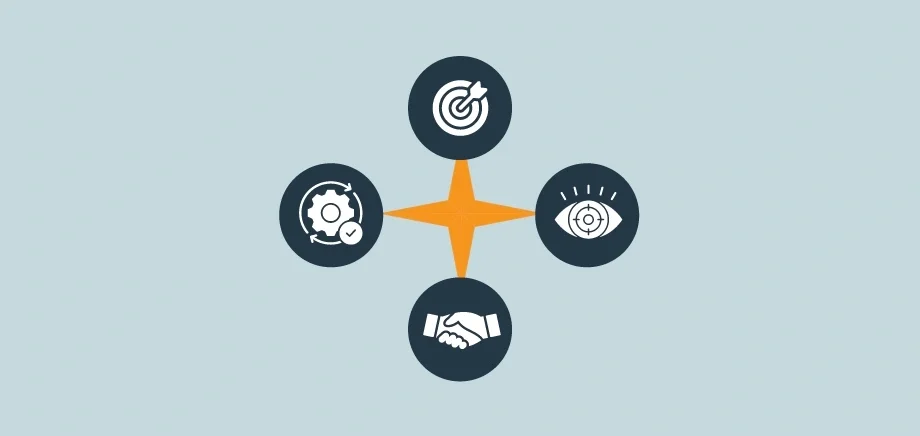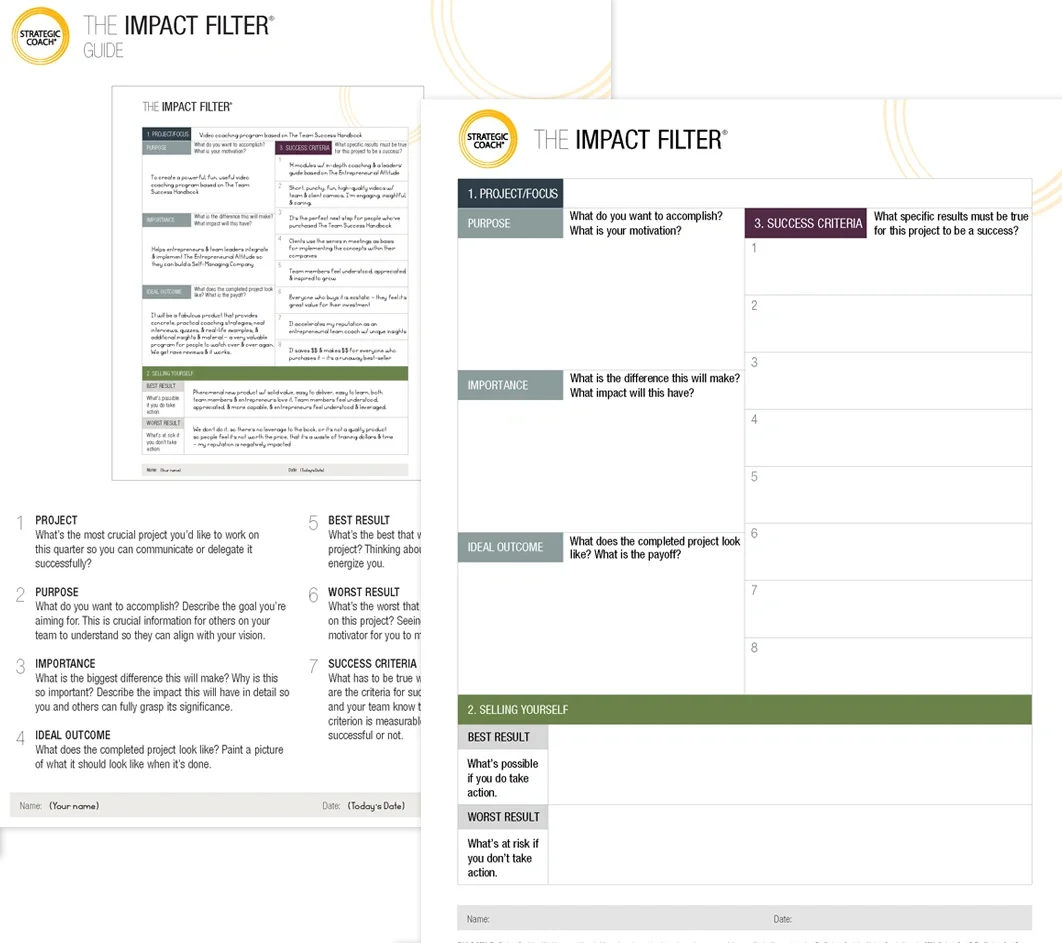7 Entrepreneurial Influence Lessons From Communication Pro Stacey Hanke
Many entrepreneurs assume they’re being clear and inspiring—but are they really?
Strategic Coach member Stacey Hanke, founder of Stacey Hanke Inc., had a turning point when she realized: “No matter how smart you are, no matter your level in an organization, or how many years of experience you have—that doesn’t determine how influential you are.”
With over two decades of experience helping Fortune 500 executives, C-suite leaders, and sales professionals enhance their influence, Stacey has seen firsthand how critical communication, trust-building, and consistency are for entrepreneurial success.
In a recent Multiplier Mindset podcast, she shared how these insights shaped her own journey and what it takes to truly lead and inspire.
Here are seven powerful lessons from Stacey’s experience that every entrepreneur can apply today:
1. Influence Is Built Monday To Monday
Early in her career, Stacey realized that influence isn’t about one-time efforts—it’s about consistency. Her “Monday to Monday” philosophy reflects the idea that how you communicate and present yourself every day determines the trust and credibility you build over time. Whether it’s a sales pitch, a casual conversation, or a high-stakes meeting, showing up with intention and consistency is key to long-term success.
Entrepreneurs must ask themselves: Are my actions and words aligned every day, or do I show up differently depending on the setting? Influence isn’t just about big moments—it’s built in the small, everyday interactions that shape your reputation.
Try this: Identify three daily habits that reinforce your credibility and influence. It could be as simple as maintaining eye contact, practicing active listening, or following through on every commitment you make.
2. Self-Awareness Is The First Step To Growth
One of Stacey’s biggest breakthroughs came when she realized that how she felt about her communication didn’t necessarily reflect how others perceived her. To bridge this gap, she began recording herself during presentations and reviewing the playback. The insights were eye-opening—what she thought was engaging didn’t always translate to her audience.
She advises entrepreneurs to seek feedback from trusted colleagues, mentors, or clients—not just for reassurance, but for true self-improvement. Instead of accepting vague responses like, “You’re doing great!’ she encourages asking specific questions such as, “Do I come across as clear and confident? Where can I improve?”
Try this: Record yourself in a team meeting or sales pitch. Watch the playback and assess whether your tone, body language, and message align with what you intended. Better yet, ask a trusted mentor to review it and provide constructive feedback.
3. Communication Is The Core Of Leadership
Regardless of industry, strong communication is the foundation of leadership. Stacey has worked with executives who are brilliant strategists but struggle to gain buy-in because their message isn’t landing. Through her work, she helps leaders refine their messaging, body language, and delivery to ensure they’re not just talking—but actually connecting.
For entrepreneurs, this means being intentional with every interaction—whether it’s with a team member, a client, or an investor. Clear, compelling communication can be the difference between stagnant growth and exponential success.
Ask yourself: Am I speaking in a way that connects with my audience, or am I just delivering information? Influence isn’t just about what you say—it’s about how well people receive and act on it.
4. Influence Is About Trust, Not Just Expertise
Stacey witnessed early on that people don’t follow the smartest person in the room—they follow the one they trust the most. Entrepreneurs often focus on showcasing their expertise, but Stacey emphasizes that trust is built through consistency, transparency, and showing up authentically.
If your audience trusts you, they will listen. If your team trusts you, they will follow. Influence isn’t about how much you know—it’s about how much people believe in you.
Try this: Build trust by following through on small commitments. Whether it’s meeting deadlines, being transparent about challenges, or simply being present in conversations, consistency builds long-term credibility.
5. Get Comfortable Being Uncomfortable
One of Stacey’s defining moments came during the early days of the pandemic when she realized she had become too comfortable in her success. Suddenly, everything changed—her business model, her revenue streams, and the way she worked with clients. It was only when she was forced to pivot that she truly stepped into her next level of growth.
She now embraces discomfort as a sign of progress. Entrepreneurs who take risks, challenge themselves, and willingly step into uncertainty will find themselves growing faster and achieving more than those who stay in their comfort zones.
Try this: The next time you feel resistance to change, lean into it instead. Ask yourself: What’s the worst that could happen? More often than not, growth lies on the other side of discomfort.
6. Your Brand Is Defined By Every Interaction
Entrepreneurs spend a lot of time crafting their brand identity, but Stacey argues that a brand isn’t just a logo or a tagline—it’s the experience you create in every interaction. From how you communicate in meetings to the way you follow up with clients, everything contributes to how people perceive and remember you.
She encourages entrepreneurs to ask themselves: What do I want people saying about me when I’m not in the room? Then, make sure every action aligns with that answer.
Try this: Do an audit of your brand presence. Look at your emails, social media interactions, and client communications. Do they reflect the brand and values you want to be known for?
7. Community Is Everything
Entrepreneurship can be isolating. Stacey has learned that success isn’t just about strategy—it’s about the people you surround yourself with. She credits Strategic Coach with giving her the community and accountability she needed to level up.
“Being an entrepreneur can be lonely, even when you have a great team,” she says. “But when you have a room of like-minded people who push you, challenge you, and hold you accountable, that’s when real transformation happens.”
Try this: Find a community of growth-minded entrepreneurs who challenge and support you. Whether it’s a mastermind group, a coaching program, or trusted mentors, having a strong network makes all the difference.








